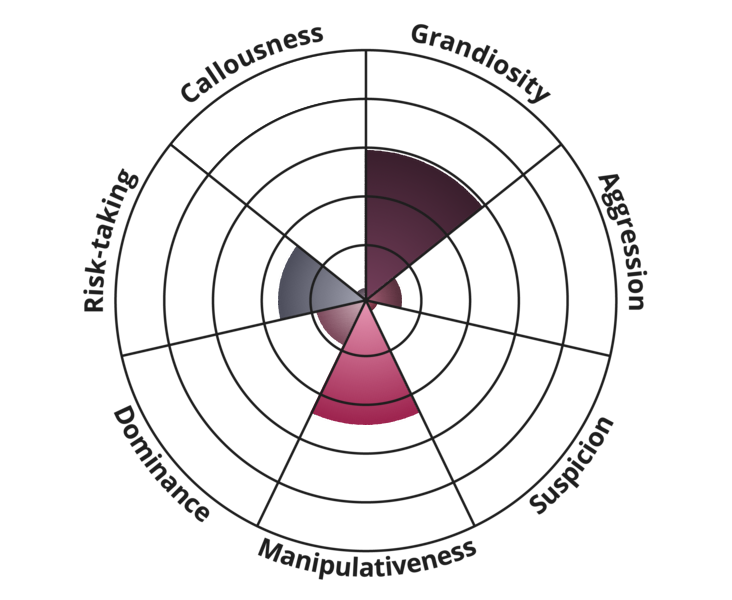Difficult Person Test
You are here because one of your friends linked you to their Difficult Person Test result:
Take the TestResults:

Your friend is an easy person to get along with (27.14%).
Take the TestExplanation of Facets:
Callousness is characterized by lacking empathy or concern for others. People high in callousness typically have deficits in genuine social sentiments and are often experienced by others as coarsely uncivil. In other words, they often make people feel uncomfortable.
Grandiosity can be described as having a grandiose sense of self-importance and the thought that one is better than others. People high in grandiosity often tout their abilities and their accomplishments while downplaying the contributions of others. They tend to put themselves on a pedestal and have a sense of entitlement about them.
Aggressiveness is the tendency to behave rudely and with hostility toward others. Aggressiveness may be doubly hurtful to others if combined with callousness, since the aggressive person may thus be both intimidating and unfeeling in their demeanor.
Suspicion is the tendency to harbor a strong and unreasoning distrust of others. Suspicious people often question the motives of even those who act loyally and devotedly toward them. Such people are often reluctant to open up to others and may interpret kind-hearted gestures as attempts to deceive them.
Manipulativeness is the inclination to exploit others to derive benefits for oneself. Manipulative people take other people for granted and use them to realize their own wishes and goals, thinking little of interpersonal reciprocity or the rights of others. Such people often exhaust and frustrate those around them, since they give little in return for the services and favors they extract from others.
Dominance is the tendency to put on airs of superiority and talk down to others. Domineering individuals have a strong desire to be seen as leaders and often react with combativeness when they cannot get what they want. They frustrate others by meddling in their affairs and with their attempts to control the decisions of those around them.
Risk-taking is the propensity to engage in risky behavior for the sake of experiencing thrills. People high in this trait impulsively seek sensations to overcome boredom, and often get pleasure from shocking others with their adventures and stunts. Risk-takers often make those around them ill at ease since their actions may have consequences for others as well as themselves.
References
- Krauss, S. (2020). 7 Basic personality ingredients of difficult people. Psychology Today.
- Pincus, A. L. (2013). The Pathological Narcissism Inventory. In J. S. Ogrodniczuk (Ed.), Understanding and treating pathological narcissism (p. 93–110). American Psychological Association.
- Samton, J. (2020). The four most difficult personalities and how to handle them. Inc.
- Schoenleber, Michelle & Roche, Michael & Wetzel, Eunike & Pincus, Aaron & Roberts, Brent. (2015). Brief-Pathological Narcissism Inventory (B-PNI).
- Sleep, C. E., Crowe, M. L., Carter, N. T., Lynam, D. R., & Miller, J. D. (2020, October 15). Uncovering the structure of antagonism. Personality Disorders: Theory, Research, and Treatment. Advance online publication.
GET THE FULL STORY
Manual of Personality Styles
WHAT YOU GET
71-page manual, explaining the make-up of all personality styles, their hidden drives, and the theory behind the system.
Presented in an easy-to-read style and backed up by solid academic references.
14-day, no-questions-asked, money-back guarantee.
Order Now